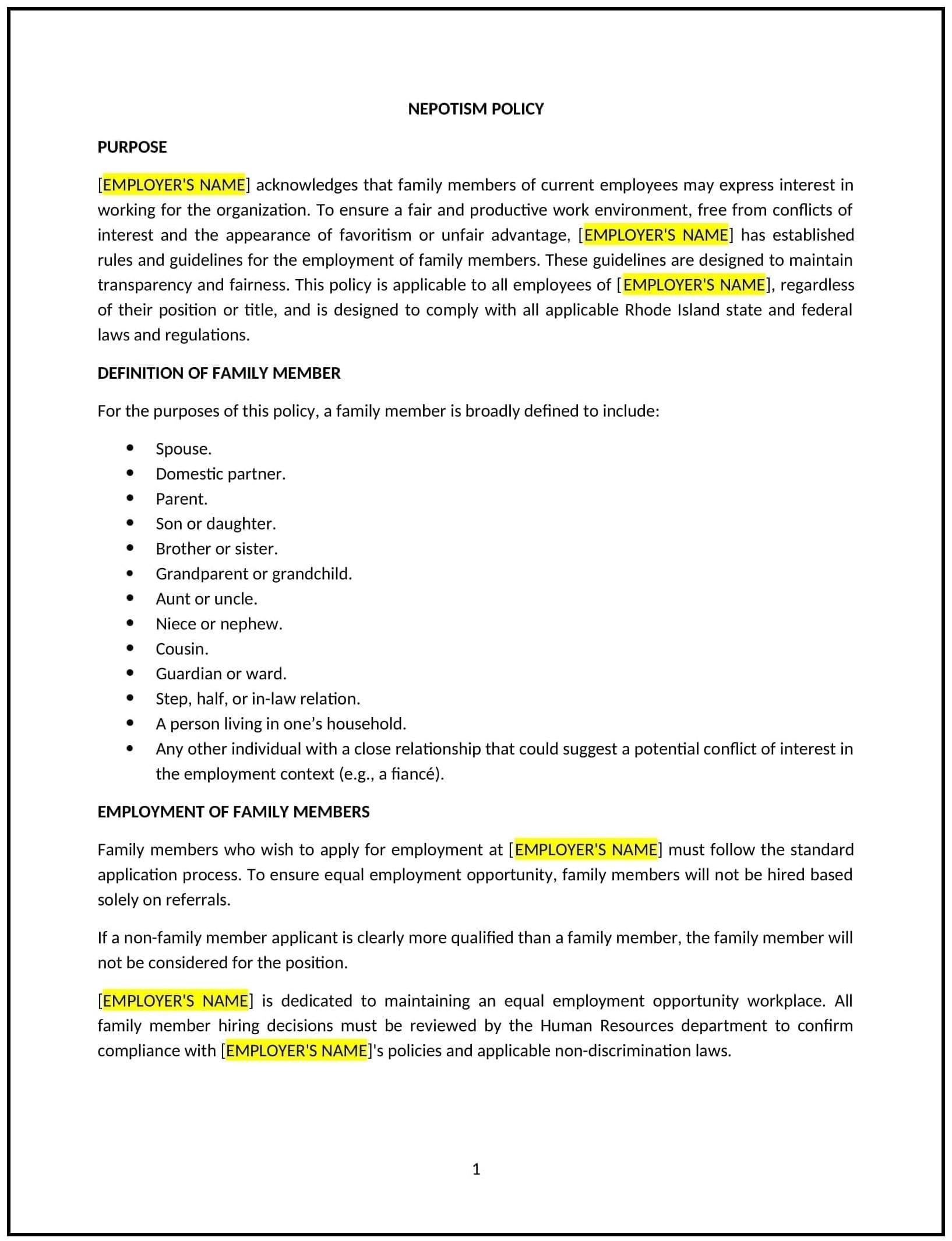Got contracts to review? While you're here for policies, let Cobrief make contract review effortless—start your free review now.

Customize this template for free
Nepotism policy (Rhode Island)
This nepotism policy is designed to help Rhode Island businesses establish guidelines for hiring and managing relatives in the workplace. It outlines procedures for avoiding conflicts of interest, ensuring fairness, and maintaining professionalism.
By adopting this policy, businesses can promote transparency, reduce favoritism, and maintain a positive workplace culture.
How to use this nepotism policy (Rhode Island)
- Define scope: Clarify which relationships are covered, such as spouses, siblings, parents, or children.
- Establish hiring guidelines: Outline steps for hiring relatives, including disclosure and approval requirements.
- Address conflicts of interest: Provide guidelines for managing situations where relatives work together or supervise one another.
- Set reporting procedures: Explain how employees should report potential nepotism or favoritism.
- Communicate expectations: Share the policy with employees and include it in the employee handbook.
- Train managers: Educate supervisors on handling nepotism-related issues and maintaining fairness.
- Review and update: Assess the policy annually to ensure it aligns with evolving business needs and legal standards.
Benefits of using this nepotism policy (Rhode Island)
This policy offers several advantages for Rhode Island businesses:
- Promotes fairness: Reduces the risk of favoritism or perceived bias in hiring and promotions.
- Maintains professionalism: Ensures workplace relationships do not interfere with business operations.
- Enhances transparency: Encourages open communication about potential conflicts of interest.
- Supports compliance: Aligns with Rhode Island labor laws and best practices for managing nepotism.
- Builds trust: Demonstrates a commitment to fair and consistent treatment of all employees.
Tips for using this nepotism policy (Rhode Island)
- Communicate the policy: Share the policy with employees and include it in the employee handbook.
- Provide training: Educate managers on handling nepotism-related issues and maintaining fairness.
- Monitor compliance: Regularly review hiring and promotion decisions to ensure adherence to the policy.
- Address issues promptly: Take corrective action if favoritism or conflicts of interest arise.
- Update regularly: Assess the policy annually to ensure it aligns with evolving business needs and legal standards.